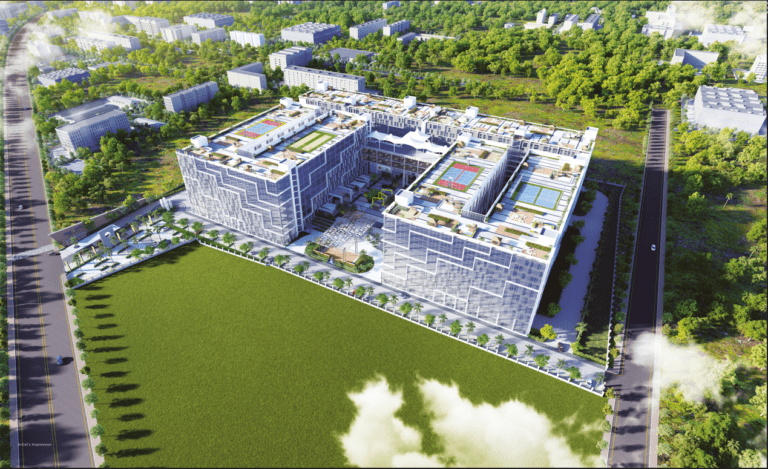The role of business parks is increasingly becoming a focal point for state governments aiming to stimulate growth, attract investment, and foster innovation in the intricate web of economic development. These hubs of economic activity go beyond mere office spaces, contributing significantly to the overall development of states.
In this blog, we will delve into the economic significance of business parks and how they play a pivotal role in shaping the economic landscape of a region.
1. Job Creation and Employment Opportunities: One of the primary economic contributions of business parks is the generation of employment opportunities. As these parks host a diverse range of industries, from technology to manufacturing, they become employment hubs, attracting a skilled workforce. The creation of jobs not only reduces unemployment rates but also enhances the economic well-being of the state’s residents.
2. Attraction of Foreign and Domestic Investments: Business parks act as magnets for both foreign and domestic investments. Companies are drawn to the infrastructure, amenities, and collaborative environment offered by these parks. The influx of investments injects capital into the state’s economy, fostering economic growth, technological advancements, and business innovation.
3. Infrastructure Development: The establishment and expansion of business parks often drive significant infrastructure development in the surrounding areas. Improved roads, public transportation, and utilities become essential to supporting the growing economic activities within and around these parks. This infrastructure development benefits not only businesses but also enhances the overall quality of life for residents.
4. Cluster Effect and Synergy: Business parks create a cluster effect, bringing together companies from similar or complementary industries. This clustering fosters synergy, encouraging collaboration, knowledge-sharing, and innovation. The collective impact of these interactions often results in the accelerated growth of industries within the park and the broader state economy.
5. Revenue Generation for Local Governments: The economic activities generated by business parks contribute significantly to the revenue of local governments. Property taxes, business licensing fees, and other revenue streams enhance the financial capacity of local authorities. This, in turn, allows for increased investment in public services, education, and community development.
6. Skills Development and Knowledge Transfer: The concentration of diverse industries within business parks facilitates skills development and knowledge transfer. Employees have the opportunity to acquire new skills, and the exchange of ideas among businesses contributes to continuous learning. This dynamic environment supports a skilled workforce, which is crucial for the long-term economic prosperity of the state.
7. Sustainable Development Practices: Many modern business parks prioritise sustainable development practices. From eco-friendly buildings to energy-efficient technologies, these parks set a standard for environmentally conscious business operations. This commitment to sustainability not only aligns with global trends but also positions the state as a responsible player in the global economy.
In conclusion, the economic significance of business parks in state development is multi-faceted and profound. From job creation and investment attraction to infrastructure development and sustainable practices, these hubs play a crucial role in shaping the economic destiny of a region. As states continue to vie for economic growth and global competitiveness, investing in and promoting the development of business parks emerges as a strategic imperative for sustainable and inclusive development.




